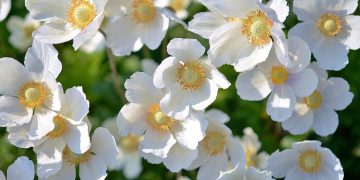A Comprehensive Guide to Cultivating Healthy Plants
Gardening is both an art and a science. The key to successfully growing healthy plants lies in understanding their basic needs and how to effectively meet them. Whether you are an amateur gardener or have years of experience, there are fundamental principles that, when implemented, can greatly enhance the vitality of your plants. This article delves into essential tips for nurturing healthy plants, common issues that may arise, and how to address them effectively.
Understanding the Basics of Plant Care
Every plant is different and may require unique care, but there are universal truths applicable to most plants. These include the need for proper sunlight, water, soil, and nutrients. To ensure your plants remain healthy, it’s crucial to balance these elements according to the specific needs of the species you are growing.
Sunlight
Light is one of the most critical factors for plant growth. Each plant has a specific light requirement ranging from full sun to partial shade. Understanding how much light your plant needs is the first step towards ensuring its health.
Water
Watering your plants might seem simple, but overwatering is one of the most common reasons for plant health issues. Plants require different amounts of water depending on the species, the environment, and the soil they are planted in. Making sure to check the soil moisture before watering can prevent problems related to both under and over-watering.
Soil Quality
Healthy soil is the foundation of healthy plant life. The ideal soil for your plant depends on its specific needs in terms of pH level, texture, and nutrient content. Regularly amending your soil with compost can help maintain its health and fertility.
Nutrients
Plants require different nutrients at various stages of their growth. Nitrogen, phosphorus, and potassium are the most critical nutrients, but too much or too little of any nutrient can lead to poor plant health. Using a balanced fertilizer can help provide these essential nutrients.
Advanced Tips for Plant Health
Pruning
Regular pruning not only helps maintain a plant’s shape but also encourages healthy growth. Removing dead or dying branches and leaves ensures that the plant’s energy is directed towards producing healthy new growth.
Pest Management
Pests can be a significant threat to plant health. Regular monitoring and early detection are crucial. Opt for organic pest control methods when possible, as these will be less harmful to both your plants and the environment.
Disease Prevention
Fungal infections and other plant diseases can quickly turn a thriving garden into a scene of decay. Ensure good air circulation around your plants and avoid overhead watering to reduce the risk of diseases.
Diagnosing Common Plant Problems
Despite best efforts, you might encounter issues with your plants. Yellowing leaves, stunted growth, or wilting are signs that your plant is in distress. These symptoms can usually be traced back to one or more of the fundamental care elements — water, sunlight, soil quality, or nutrients.
Overwatering
If the leaves are yellow and wilted, you might be overwatering. Let the soil dry out before you water again, and ensure your pots have adequate drainage.
Underwatering
Wilting can also be a sign of underwatering. If the soil is dry, your plant probably needs more water. Adjust your watering schedule accordingly.
Lack of Nutrients
Stunted growth and pale leaves are often symptoms of nutrient deficiency. Applying a balanced fertilizer can help remedy this issue.
Frequently Asked Questions
How often should I water my plants?
Water needs vary widely between different plants and even different environments. Check the top inch of soil for dryness before watering most plants.
Which fertilizer should I use?
Use a balanced fertilizer labeled 10-10-10 for most plants, which signifies equal parts of nitrogen, phosphorus, and potassium. Always follow the recommended dosage on the packaging.
Why are my plant leaves turning yellow?
Yellow leaves can be caused by a variety of issues, including too much water, not enough nutrients, or insufficient light. Assess your plant’s environment and make adjustments accordingly.
Conclusion
Cultivating healthy plants requires attention to their specific needs and a willingness to adapt your care strategies. By understanding the fundamental aspects of plant care and responding appropriately to problems, you can ensure a thriving garden full of healthy plants. Remember, the health of your plants is directly influenced by the care they receive, making every effort you invest worthwhile.
By following this detailed guide, you’ll be better equipped to handle the challenges of gardening and enjoy the rewards of a healthy, vibrant plant life.























































